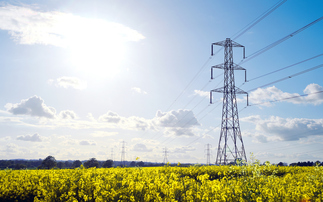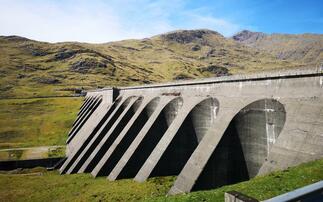Latest green investment commitment comes after S&P predicts Paris Summit will have major implications for investors
Barclays bank has pledged to invest a further £1bn in green bonds that will support projects to tackle climate change, after hitting a previous £1bn target this month.
The bank said the commitment was one of the largest green bond pledges by any institution globally.
Barclays last year annouced it would aim to invest at least £1bn in climate themed bonds by November 2015 in order to help raise capital for global efforts to tackle climate change.
Green bonds issuance in 2015 is expected to reach $60bn to $70bn, according to the Climate Bonds Initiative, up from just $8bn in 2007. Barclays yesterday said current issuance for 2015 stands at $29.66bn. Late last week HSBC also announced plans to invest $1bn in green bonds to boost its investments in renewable energy and clean transportation.
Tushar Morzaria, Barclays group finance director, said green bonds were becoming an increasingly "powerful" proposition, adding that the investment approach "has the potential to push green projects including renewables forwards at pace".
"We're pleased to be an early adopter in the fast-growing and exciting area and will continue to support this market through our investments, products and services," he added.
The news comes after ratings agency Standard and Poor's predicted a new international climate deal in Paris next month will mark a turning point in global efforts to limit greenhouse gas emissions leading to have major implications for the energy sector and investors.
In a research note published late last week, S&P outlined the implications of the United Nations COP21 session for companies and businesses.
The analyst firm concluded there is "no going back" if a deal is signed, adding that it would mark a "critical turning point" in the effort to tackle climate change, with most countries accepting the need to act to tackle emissions regardless of who goes first.
S&P also predicted a deal could have major implications for finance flows around the world. "Commitments within an internationally agreed framework could provide the common norms that will allow actions by sovereign states to link up and unlock the finance necessary to decarbonise the world's economy," it stated. "This could be through the promotion of linkages between established carbon pricing mechanisms and markets."
The report said pledges made at COP21 must bring "deep" emissions cuts to the energy supply sector which accounts for two thirds of the world's greenhouse gas emissions. "The use of low-carbon energy sources is already expanding rapidly, and signs point to a gradual decoupling of energy-related emissions and GDP growth", it stated.
The report noted that many of the national plans put forward by governments in anticipation of a deal target fossil fuel producers and particularly coal - the dirtiest form of energy production. In particular it noted that predictions about "massive growth" of coal demand in China have "evaporated".
This article is part of BusinessGreen's Road to Paris hub, hosted in association with PwC









